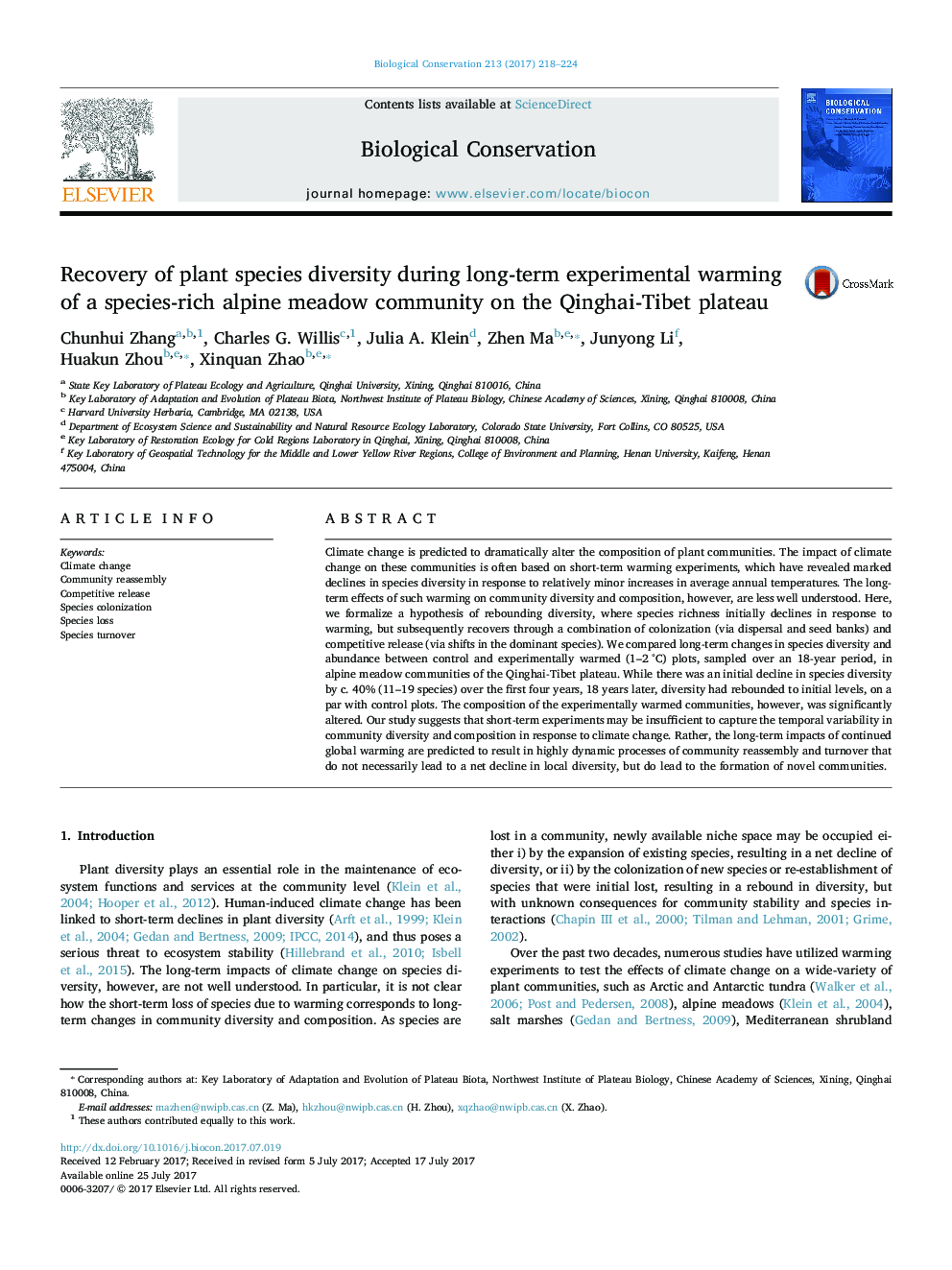| Article ID | Journal | Published Year | Pages | File Type |
|---|---|---|---|---|
| 5742996 | Biological Conservation | 2017 | 7 Pages |
â¢The experimental warming study was carried out in alpine meadow communities.â¢Species richness initially declined in response to warming.â¢Species richness subsequently recovered through colonization and competitive release.â¢Long-term warming does not necessarily lead to a net decline in local diversity.â¢Continued warming results in highly dynamic processes of community reassembly.
Climate change is predicted to dramatically alter the composition of plant communities. The impact of climate change on these communities is often based on short-term warming experiments, which have revealed marked declines in species diversity in response to relatively minor increases in average annual temperatures. The long-term effects of such warming on community diversity and composition, however, are less well understood. Here, we formalize a hypothesis of rebounding diversity, where species richness initially declines in response to warming, but subsequently recovers through a combination of colonization (via dispersal and seed banks) and competitive release (via shifts in the dominant species). We compared long-term changes in species diversity and abundance between control and experimentally warmed (1-2 °C) plots, sampled over an 18-year period, in alpine meadow communities of the Qinghai-Tibet plateau. While there was an initial decline in species diversity by c. 40% (11-19 species) over the first four years, 18 years later, diversity had rebounded to initial levels, on a par with control plots. The composition of the experimentally warmed communities, however, was significantly altered. Our study suggests that short-term experiments may be insufficient to capture the temporal variability in community diversity and composition in response to climate change. Rather, the long-term impacts of continued global warming are predicted to result in highly dynamic processes of community reassembly and turnover that do not necessarily lead to a net decline in local diversity, but do lead to the formation of novel communities.
